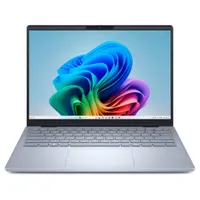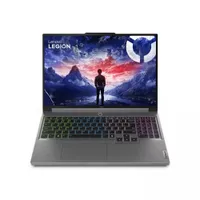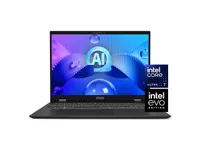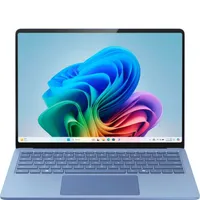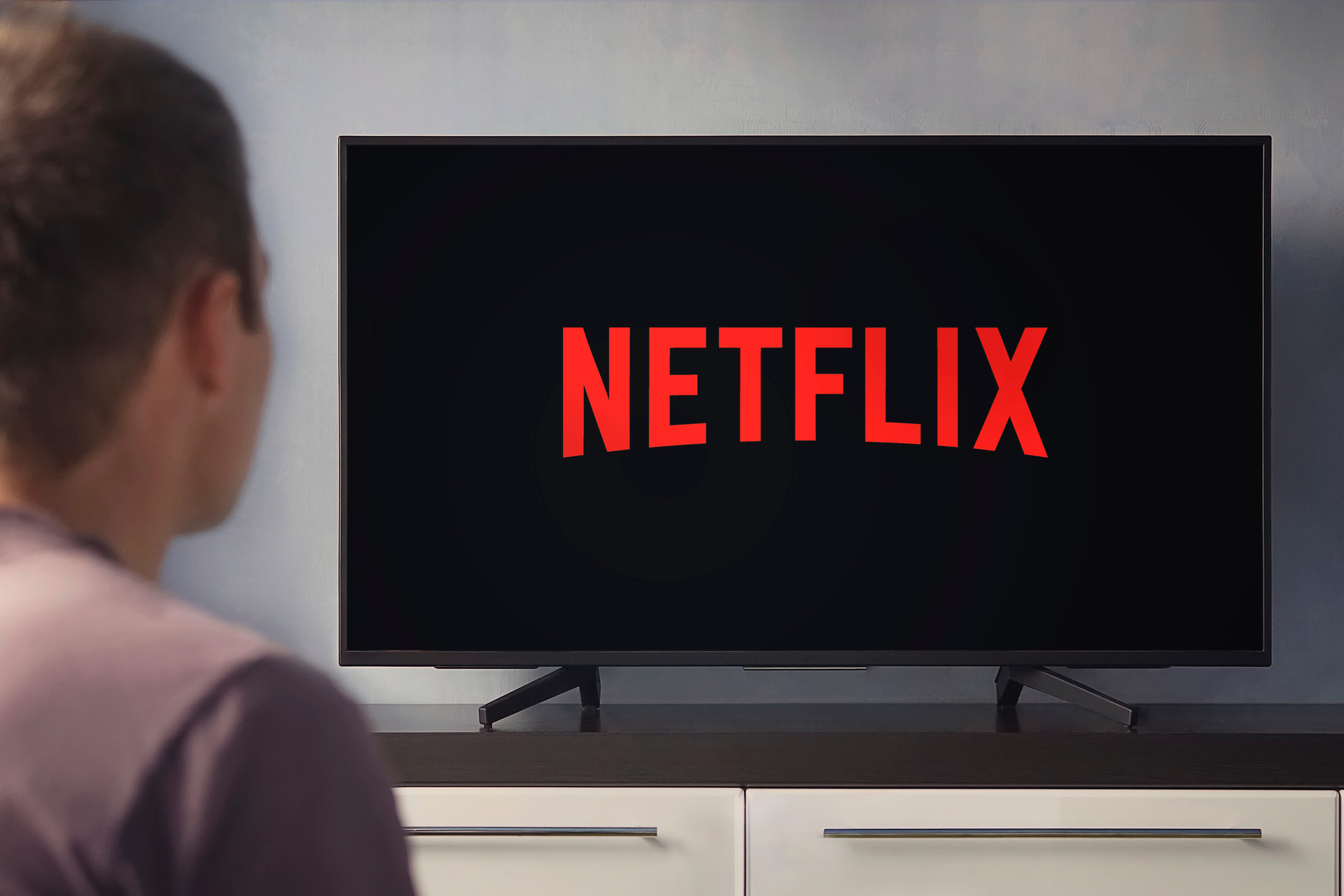These are the 9 best Windows laptops we've tested that I actually recommend
I review a ton of laptops, and these are the best Windows machines
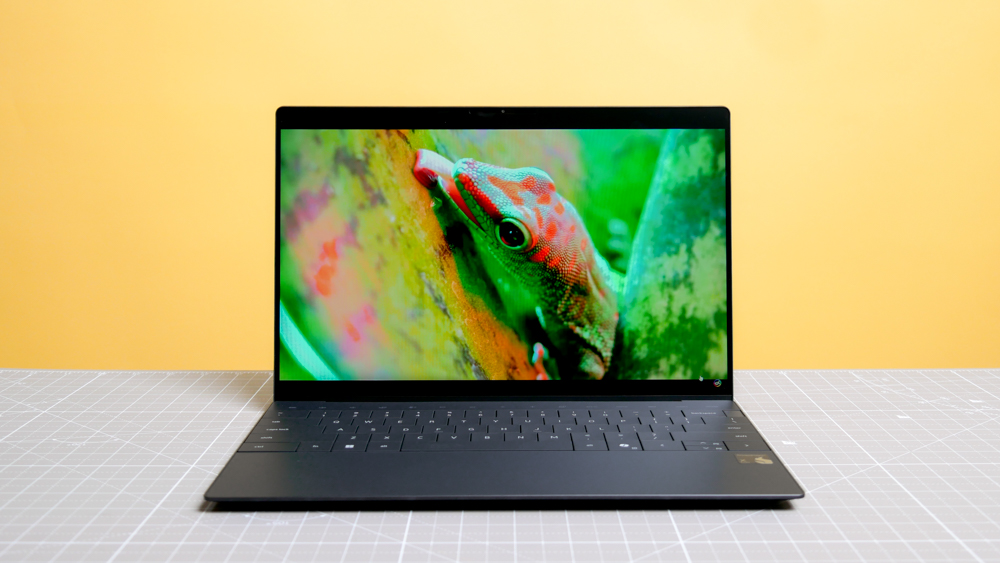
I've been using and loving Windows PCs since the '90s, so I can tell you with confidence that the best Windows laptops are better than they've ever been — as long as you've made peace with Windows 11.
If you're looking to buy a laptop that runs it well I recommend the Dell XPS 13 as the best Windows laptop for most due to its elegant design and light weight, as well as the fact that its Snapdragon chips deliver MacBook-beating speed and battery life.
For those looking to save money I heartily recommend the Acer Aspire Go 15 as a budget alternative because it gives you a full Windows 11 laptop for under $500. But if you need a gaming laptop I suggest the Asus ROG Zephyrus G14 because it runs most games great and doubles as a productivity laptop in a pinch.
Read on for more recommendations (backed up by our own in-house lab testing) about which are the best Windows laptops you can buy, as well as full reviews of each machine to help you find the right laptop for you!
The best Windows laptops you can buy right now
Why you can trust Tom's Guide
Best Windows laptop overall
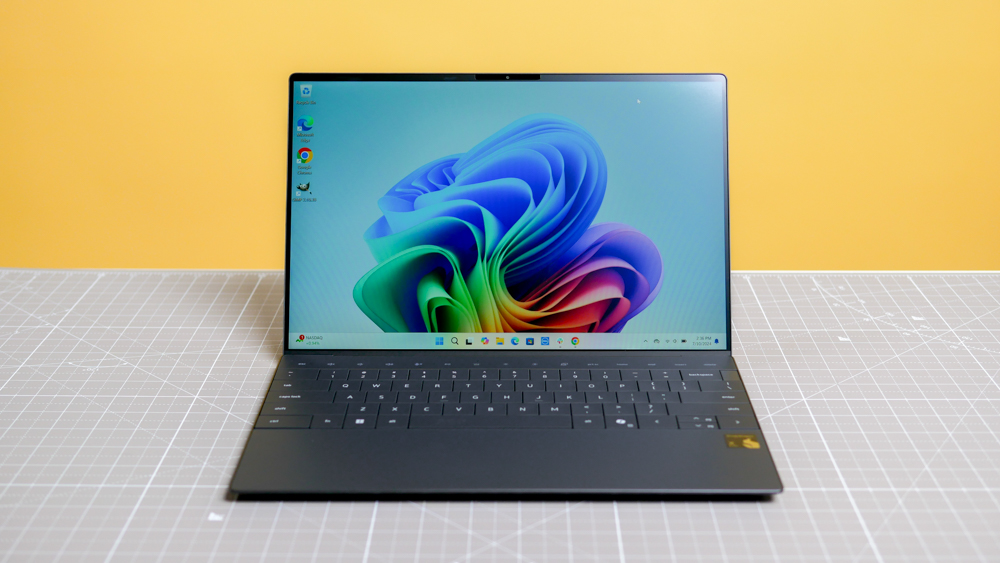

Specifications
Reasons to buy
Reasons to avoid
I have an easy time recommending the Dell XPS 13 as the best Windows laptop for most folks because it sports the same sleek, attractive design that the XPS line has had for years.
But unlike prior models, the latest Dell XPS 13 can be had with Qualcomm's Snapdragon X chips inside, and these models deliver excellent performance and insanely long battery life (nearly 20 hours in our testing).
Even if you get a model with Intel chips you can look forward to a premium Windows laptop experience thanks to the XPS 13's thin, nearly bezel-less 1200p display and eye-catching design. I had a hard time getting used to using the capacitive touch keys and the invisible touchpad, but once you get the hang of it there's nothing to it.
While you don't get a ton of ports, this svelte 13-incher is lean and mean and comes with USB-C ports you can use to connect external peripherals. It's basically a MacBook Air competitor, and if you can afford the cost I think it's one of the best Windows laptops you can get for getting work done on the go.
For all these reasons and more, this is the Windows laptop we recommend most often to those in the market for a new notebook for work, school or play.
- Read our full Dell XPS 13 (2024)
Best budget Windows laptop
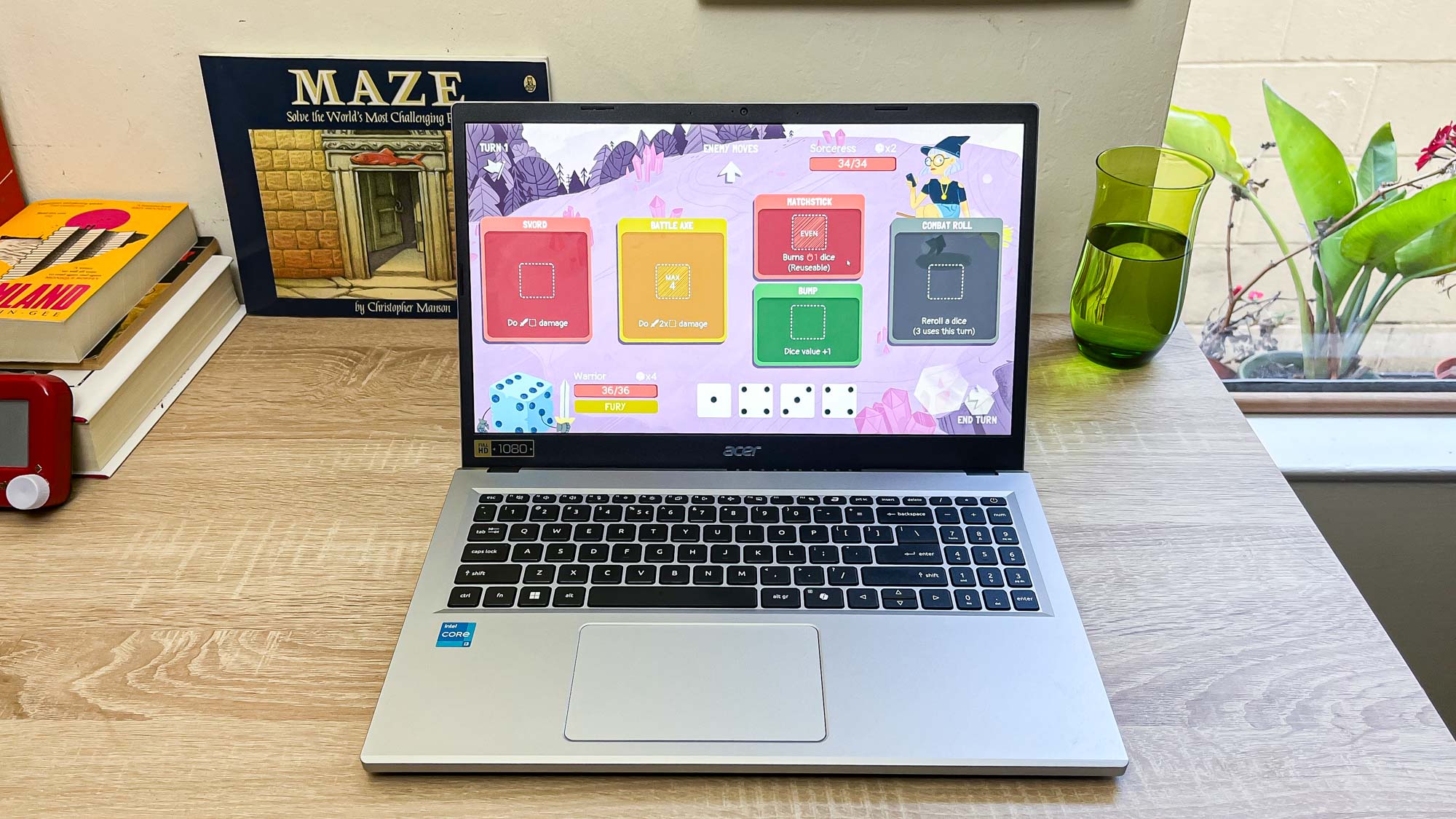

Specifications
Reasons to buy
Reasons to avoid
One thing I like about Windows laptops is that you can get a really useful PC for not too much money. This helps the best Windows laptops stand out from MacBooks, and gives you more leeway to get a great value.
Case in point: Acer's Aspire Go 15 isn't an amazing laptop, but it doesn't have to be when the asking price is $300. At that price, you can make peace with the fact that the Go 15's low-powered CPU and paltry complement of 8GB RAM and 128GB of storage aren't good for much else besides browsing the web, writing and editing, and maybe some very light gaming.
But that's fine for folks who just need a cheap laptop to browse the web or write emails. What the Acer Aspire Go 15 lacks in features or charm it more than makes up for in utility, as it offers 10 hours of (tested) battery life and a keyboard that's surprisingly comfy to type on.
And while I think its 15.6-inch 1080p screen looks a bit washed-out and won't make colors pop, it's more than good enough for web surfing or working with documents.
The Acer Aspire Go 15 doesn't look, feel or sound as fancy as the other laptops on this list, but it's a serviceable workhorse with a $299 price tag, making it the best Windows laptop for those on a budget and looking for great value.
- Read our full Acer Aspire Go 15 review
Best 2-in-1 Windows laptop
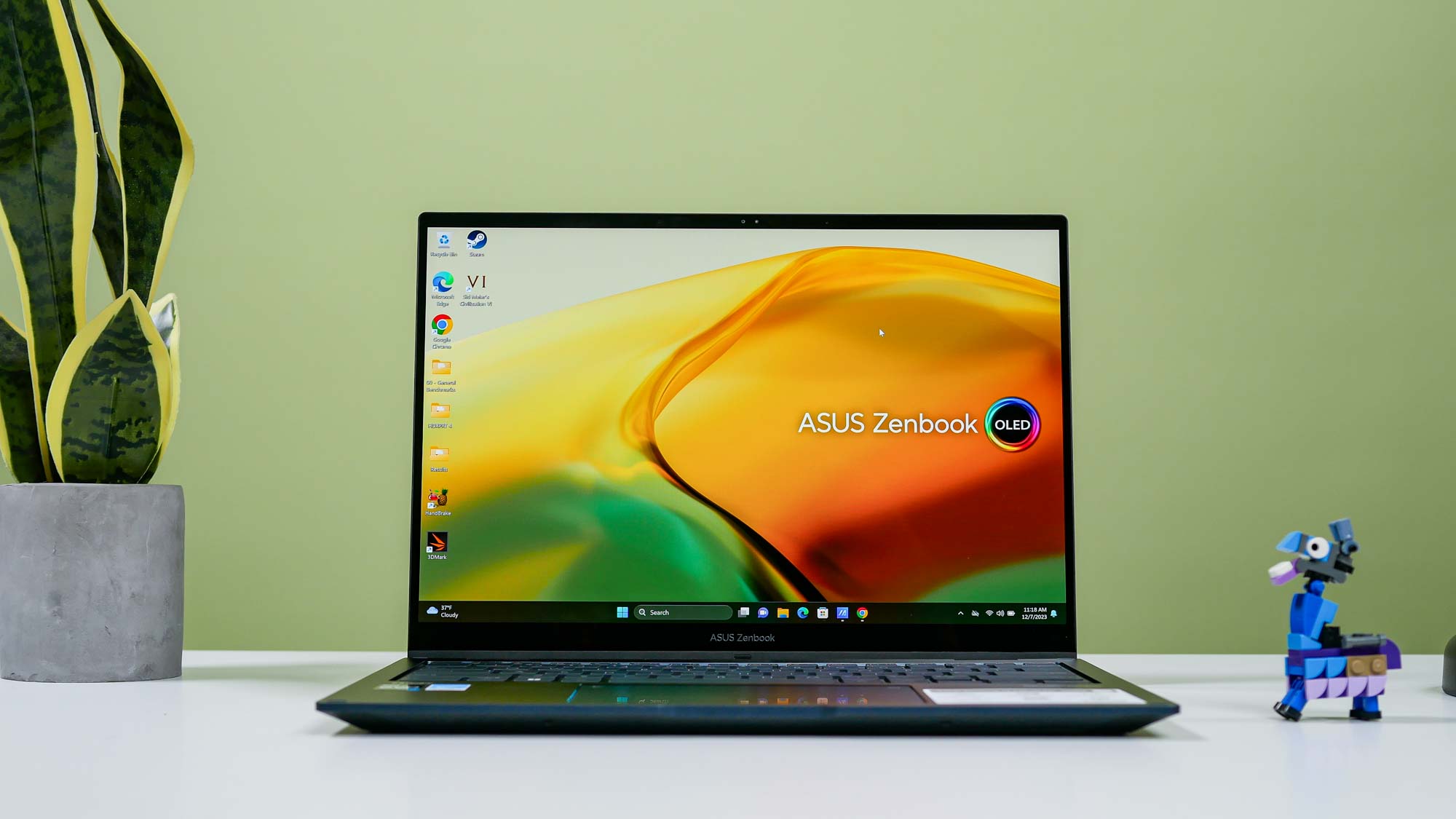

Specifications
Reasons to buy
Reasons to avoid
One of the things that's great about Windows laptops is that you can get a lot of 2-in-1 designs that allow you to flip the touchscreen over, turning the laptop into something resembling a giant Windows 11 tablet.
This gives you a lot of versatility, and one of my favorites is the Asus Zenbook 14 Flip OLED. Sure, the 720p webcam is disappointing and the laptop managed under ten hours in our battery test, putting it behind best MacBooks in terms of power efficiency. But if you can live with those drawbacks, you get a lot of great stuff in this Windows 11 2-in-1.
For instance, I think the beautiful 2.8K OLED screen makes whatever you do on it look nice, and the keyboard is comfy and nice to use. I found performance is plenty fast, and when you factor in the svelte and beautiful chassis sporting plenty of ports you start to see why this affordable 2-in-1 is a compelling value.
That's why I think if you’re in the market for a dependable 2-in-1 with a svelte design and eye-pleasing OLED panel, this is a great laptop to get!
- Read our full Asus Zenbook 14 Flip OLED review
Best dual-screen Windows laptop
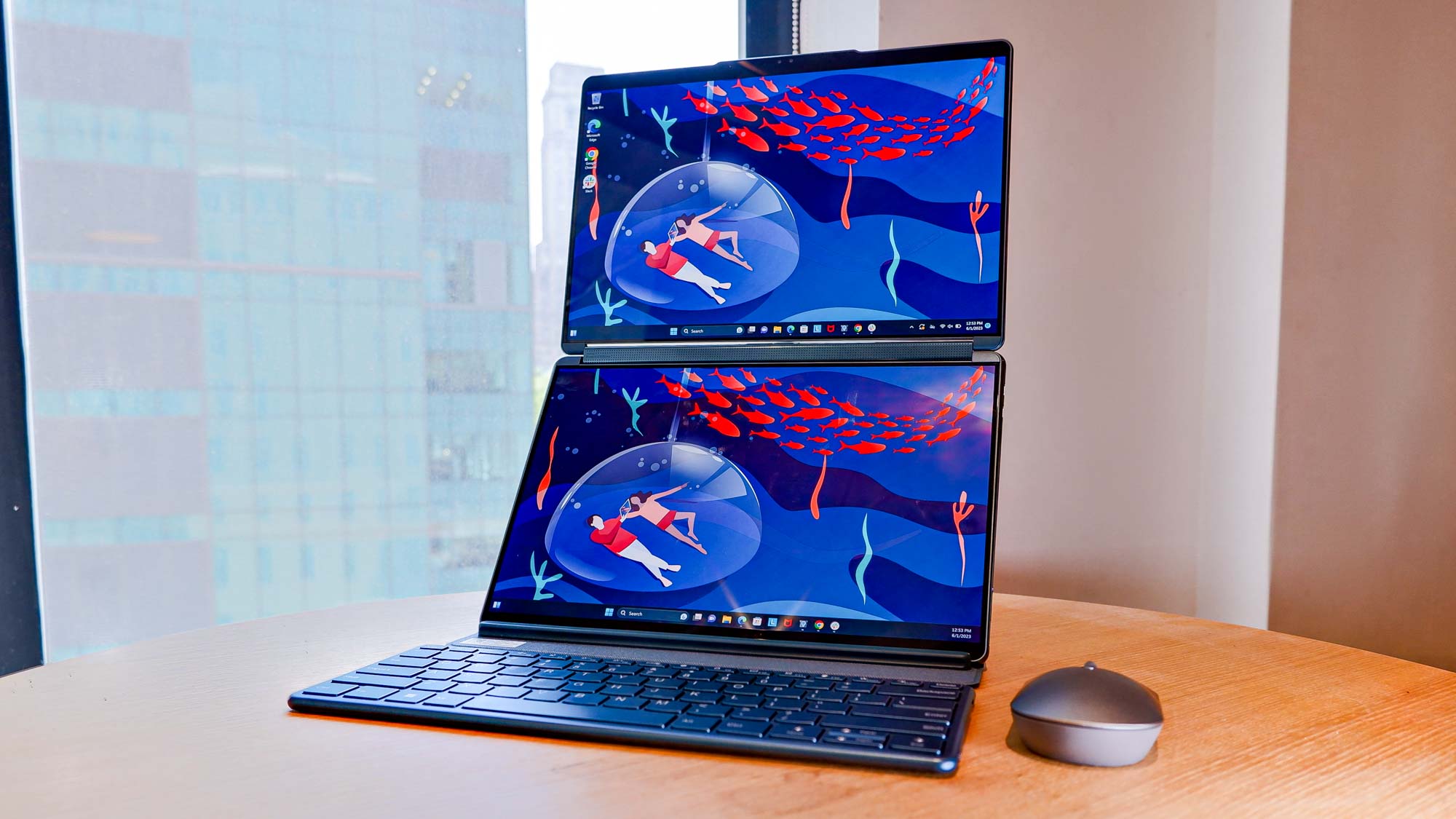

Specifications
Reasons to buy
Reasons to avoid
I know, this laptop looks wild in photos. But once you get the hang of using it, I think there's a lot to recommend it.
See, the Lenovo Yoga Book 9i unites a pair of beautiful 13.3-inch OLED displays in one device, delivering you a unique laptop that can turn into a variety of unique-looking configurations to fit your needs. This laptop can stand in as a traditional Windows 11 laptop or tablet, plus it can go into tent mode for presentations.
While the design itself can feel a little flimsy and less than sturdy, when you get the hang of using it you may appreciate how versatile and useful this two-screen machine be. Type right on one display or use the separate Bluetooth keyboard to bang out emails on your lap in one screen while you watch movies on the other, and you'll start to appreciate how this laptop starts to feel like a Swiss Army knife.
Though it’s expensive for what you get, this oddball laptop offers enough singular value to be included in this list. If you're the kind of person who absolutely can't work without two screens, this is a great option for getting things done on the go.
- Read our full Lenovo Yoga 9i review
Best Windows gaming laptop
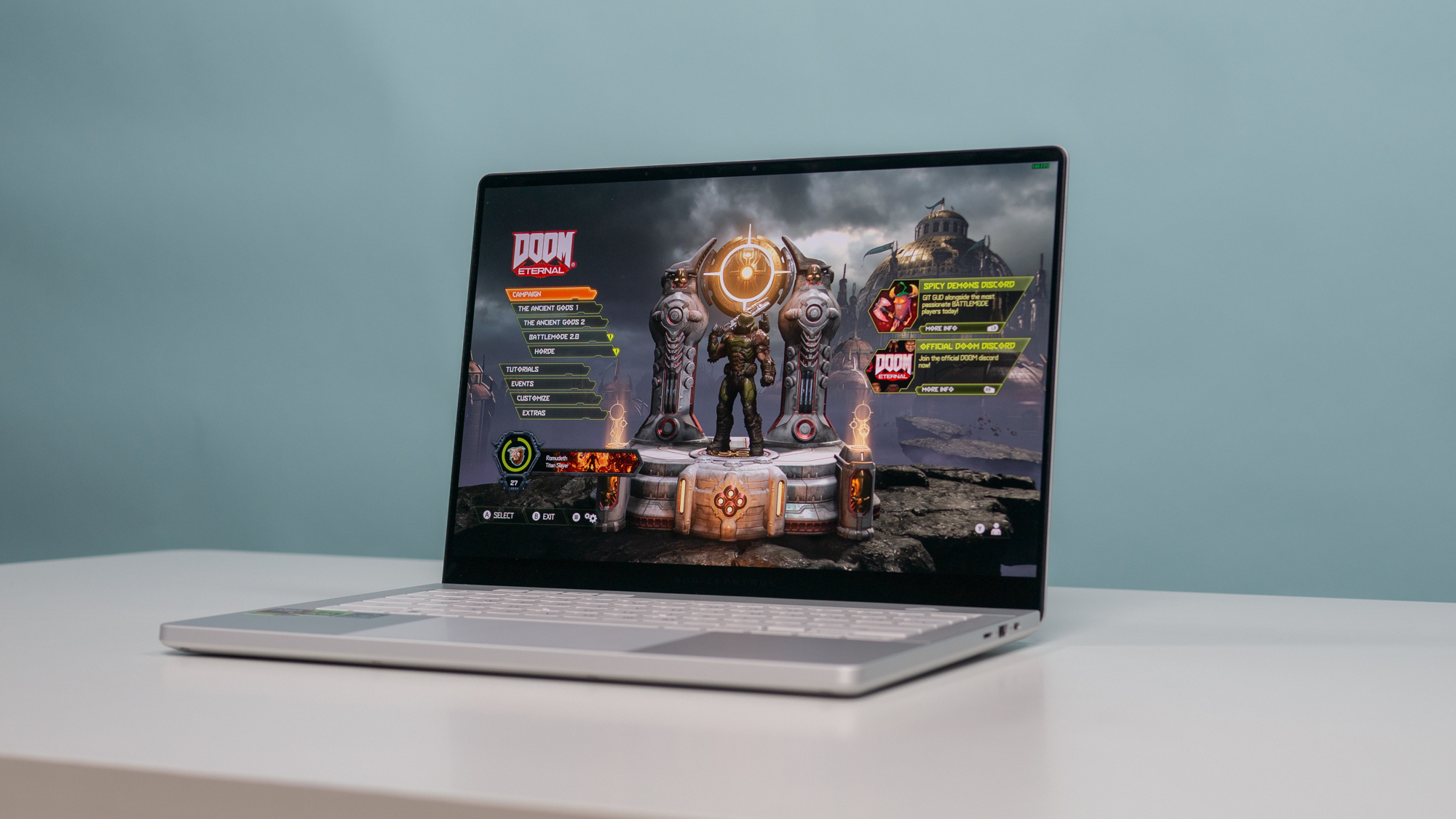

Specifications
Reasons to buy
Reasons to avoid
The Asus ROG Zephyrus G14 has been one of my favorite Windows gaming laptops for a long time, and I think the latest model is better than ever thanks to its 3K OLED display.
I like the G14 because it doesn't look so much like a typical gaming laptop, encased as it is in a slick 14-inch ultraportable chassis that has plenty of ports and looks good on a desk.
Sadly, the laptop lasted under 7 hours surfing the web in our battery test and just over an hour while gaming, so it's not got great battery life. But that's to be expected with gaming laptops, and as long as you keep it plugged in while gaming this machine is a lovely little workhorse.
The Nvidia GeForce RTX 4070 laptop GPU in our review unit gives it more than enough muscle to play the latest games well, especially if you rely on Nvidia's DLSS upscaling tech, making this the Windows gaming laptop we recommend most.
- Read our full Asus ROG Zephryus G14 review
Best Windows laptop for creators
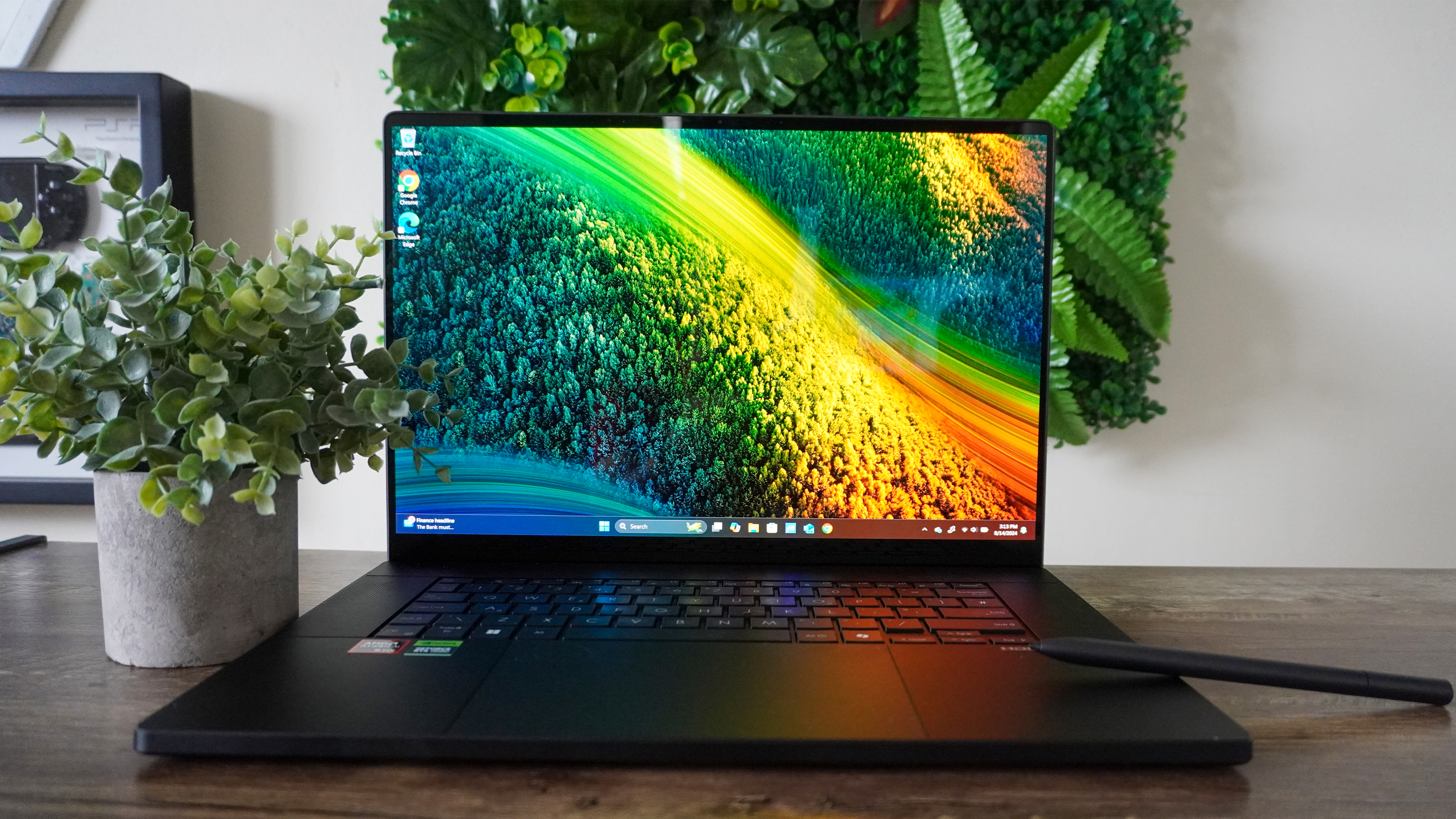

Specifications
Reasons to buy
Reasons to avoid
When our own Jason England tried out the Asus ProArt P16 for review he was blown away by the sleek, attractive design and eye-catching 4K OLED display. If you want a Windows laptop as attractive and powerful as a MacBook Pro, this is the creator laptop I recommend most often.
The reason? This mean-looking matte black aluminum beast has power to spare and evinces some thoughtful attention to the ergonomics — including a stellar keyboard and touchpad, alongside a DialPad for finite creative control over your projects.
But it all comes together with the display and internals you need for even the most power-hungry workflows. The 4K OLED touchscreen is color calibrated for peak accuracy and confidence in the hues of your work, and that AMD Ryzen AI 9 HX 370 + RTX 4070 combo tears through any intense processing in record time.
Admittedly, battery life suffers because of it, but if you’re looking for the best Windows laptop to create great content, this is the one I recommend you buy.
- Read our full Asus ProArt P16 review
Best OLED Windows laptop
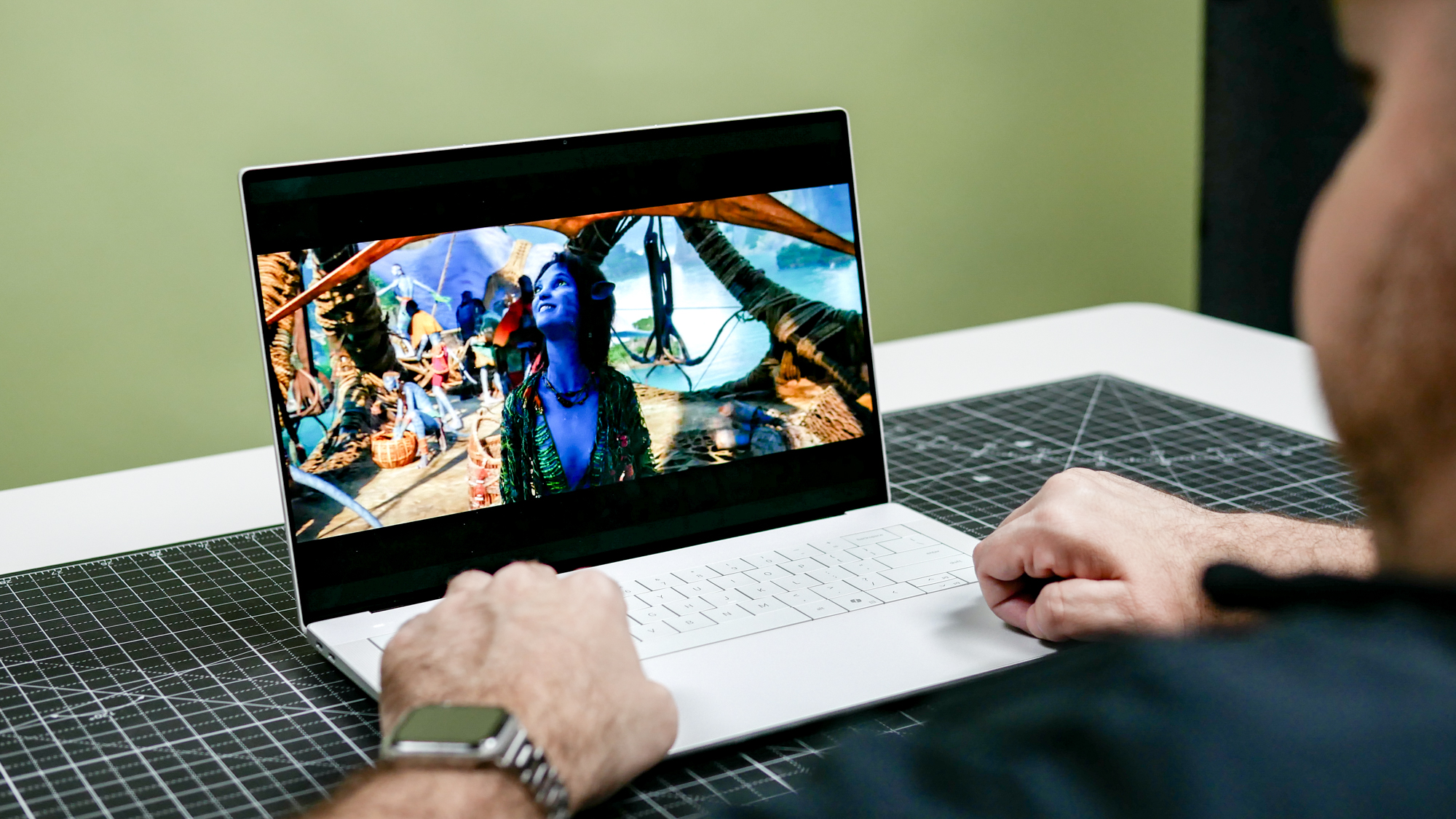

Specifications
Reasons to buy
Reasons to avoid
The Dell 14 Premium is what we used to call the Dell XPS 14, but now it has a fancy new name gracing the familiar function row-less Dell laptop design.
Perhaps the most impressive feature of the Dell 14 Premium is its 14.5-inch (3,200 x 2,000 pixels) 120Hz OLED touchscreen. In our hands-on testing this display makes everything you do on it look better, from streaming UHD shows to gaming in HDR and even just slinging spreadsheets.
An OLED display is one of the upgrades I prize most in a PC because it helps you see brilliant whites, inky blacks and deep contrasts in movies and games. This portable powerhouse is pretty good for mid-range gaming too thanks to the Nvidia GeForce RTX 4050 laptop GPU you can equip it with.
But if you don't need to play much more than the occasional game of Solitaire or Candy Crush, you can get away with the cheaper model packing just an Intel Arc integrated graphics card.
No matter which GPU you go with, you should get plenty of computing power thanks to the Intel Core Ultra 7 255H CPU driving the Dell 14 Premium. In our CPU testing it competed favorably with the MacBook Pro M4 and even beat it out in multi-threaded CPU performance, and that pairs with the 32GB of onboard RAM to give you lots of multi-tasking power.
The 1 TB of SSD storage gives you plenty of room to store your work as well as a few cherished movies and games, but be careful when you take this thing out and about. In our battery tests it barely lasted eight hours surfing the web on a full charge, so you may want to consider bringing the charger with you for a day of work or school.
But wherever you take it, rest assured whatever you're up to will look luscious on the lovely 14.5-inch OLED display.
- Read our full Dell 14 Premium review
Best Windows business laptop
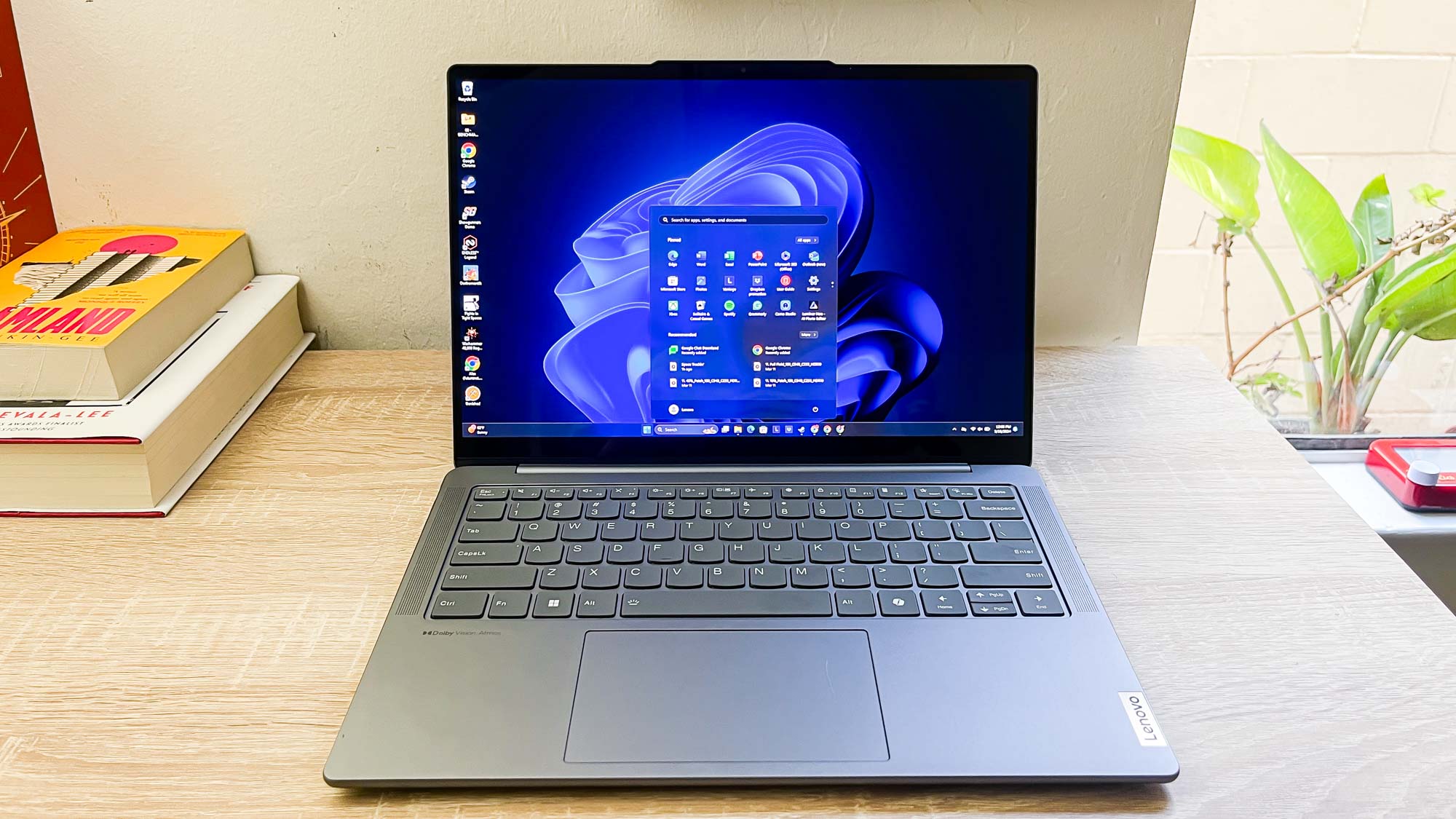

Specifications
Reasons to buy
Reasons to avoid
I'm fond of the Lenovo Slim 7, and I often recommend it as the best Windows business laptop because its easy to carry, comfy to type on and offers good performance and battery life (10+ hours tested).
This is a great laptop for folks who need something that can do double duty as a personal and work laptop. While it's not powerful enough to play serious games or do demanding editing work, it's more than speedy enough for writing, doing homework, putting together presentations and tackling remote coursework.
The upside is that while you don't get a ton of power, you get some nice creature comforts that make using this laptop a delight. I really love the 14-inch OLED touchscreen, which makes everything you do on the device look lovely. Plus, the touchscreen functionality gives you the option of taking your hands off the keyboard and trackpad to tap and swipe when you feel like it.
The keyboard also feels better than most beneath my fingers, thanks to the generous spacing between keys and the subtle indents on each that help your fingers rest comfortably.
The downside is that the power cable is awfully short, which means you may have a tricky time plugging into an outlet in crowded meeting rooms or coffee shops. The fact that the power button is on the side of the laptop is also frustrating, since it caused me to occasionally power the thing off or put it into sleep mode when I was just trying to plug something in.
But overall, this is a great ultraportable that's the best Windows laptop for business use I've ever reviewed. The model I reviewed is sold at Costco so it's a great deal, but if you can't find it at Costco or don't have a membership Lenovo sells very similar models at Amazon and Best Buy.
- Read our full Lenovo Slim 7 review
Best Samsung Windows laptop
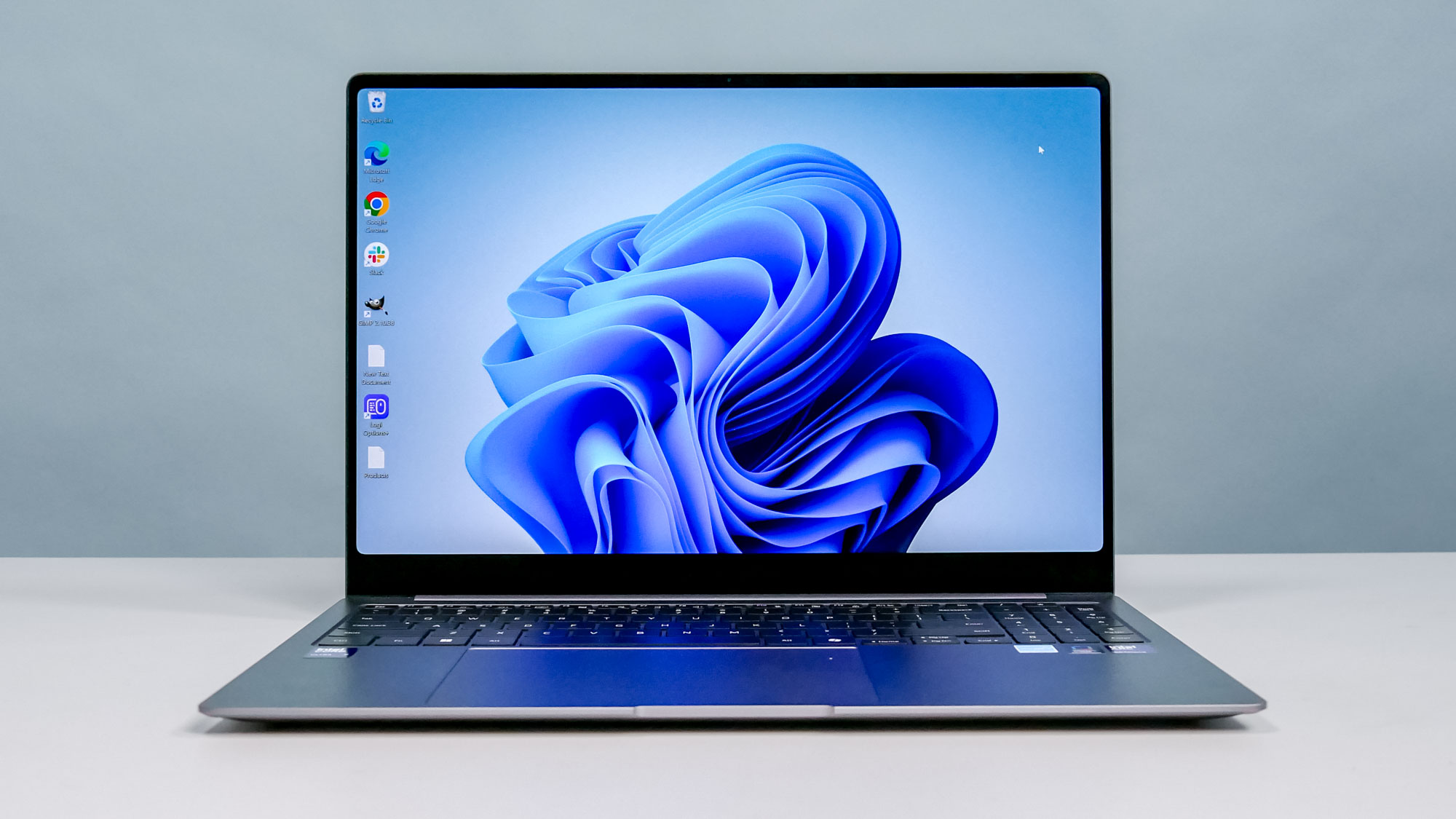

Specifications
Reasons to buy
Reasons to avoid
The Samsung Galaxy Book 5 Pro has everything we love about the company's laptops. This includes a slim design, beautiful OLED display and a fantastic keyboard. This models packs the latest Intel Core Ultra 7 "Lunar Lake" chip, which gives it enough power for everyday work and even light gaming. And if you're into AI, this laptop comes with Copilot+ built-in.
The star of the show is the 16-inch (2880 x 1800) OLED display. It delivers vibrant image quality, making movies and shows look stunning. It also gets decently bright with both SDR and HDR content, so you can see even the smallest details in videos and websites.
The lightweight and thin design makes this an excellent travel partner. Not only is it easy to carry around, it’s also stylish thanks to its dark gray color and all-around minimalist aesthetic. It also has a decent amount of ports, including a USB-A one for legacy devices.
The Intel Core Ultra 7 chip is powerful enough for watching videos, browsing the web and getting work done. That said, competitors with Snapdragon X Elite inside have better performance and battery life. The Galaxy Book 5 Pro’s AI capabilities work well for translating videos or generating images in Microsoft Paint, but this likely won't be a selling point for most folks.
Though Copilot+ PCs with Snapdragon X Elite have better performance and energy efficiency, Lunar Lake laptops like the Galaxy Book 5 Pro have greater compatibility with apps and programs than Qualcomm’s notebook chips. Add the beautiful OLED display and portability, and the Galaxy Book 5 Pro is arguably the best Samsung Windows laptop right now.
- Find our full Samsung Galaxy Book 5 Pro review
Also tested
We test and review dozens of Windows laptops every year, and they can't all be the best — but just because they don't all make this list doesn't mean they aren't good machines.
No, there are loads of great laptops that don't quite achieve the level of excellence needed to lead the pack. But they're still great machines, and they're worth considering if you're looking for a specific feature or another laptop you want isn't available.
Below, I've gathered all the great laptops we've tested which don't quite make this list, but are still good alternatives well worth considering if they meet your unique needs, or if you can't find your first choice on sale.
Dell 14 Plus (★★★★☆)
The Dell 14 Plus is the epitome of a boring business laptop thanks to its discreet, dull design and dim display, but while it's not great enough to climb our list it delivers good performance and battery life (plus a comfy keyboard) for not too much money. I prefer the Lenovo Slim 7 for a 14-inch business laptop, but this one is a solid buy.
Read our full Dell 14 Plus review
Lenovo Legion Pro 7i (★★★★☆)
I'm a big fan of the Lenovo Legion Pro 7i because it's a capable gaming laptop that sports a sleek design, plenty of ports and a gorgeous 16-inch 1600p 240Hz OLED display. And now that it comes with RTX 50-series laptop GPUs, it can basically plug into your TV and function as a gaming PC you can take with you on the go.
However, I don't recommend it over the Asus ROG Zephyrus G14 because the G14 is smaller and lighter, making it a lot easier to manipulate. And since the G14 also comes with RTX 50-series GPUs now, the Legion Pro 7i's amazing power is not unique to it.
Read our full Lenovo Legion Pro 7i review.
MSI Prestige 16 AI Evo (★★★★☆)
This is a big, speedy Windows 11 laptop with a good (if glossy) 16-inch screen, good performance and 15+ hours of tested battery life thanks to its Intel Core Ultra 2 CPUs. It's not great for gaming and not quite great enough to make the short list, but it is nice for getting work done on the go thanks to its surprising portability.
Read our full MSI Prestige 16 AI Evo review
Microsoft Surface Laptop 7 (★★★★☆)
The Microsoft Surface Laptop 7 is the first Surface Laptop to ship with a Snapdragon CPU inside, and the extra power and battery life it affords make this the best Surface Laptop yet. I don't love how middle-of-the-road it is and you can do better in a Windows laptop, but good battery life and performance (plus a comfy keyboard and Wi-Fi 7 support) make this a reliable ultraportable for getting work done.
Read our full Microsoft Surface Laptop 7 review
Performance test results
CPU speed isn't everything, but putting a number on it can go a long way towards helping you understand exactly how fast a laptop is in relation to the rest of the options available to you.
We test every laptop we review in a number of areas, including CPU performance, so I've taken the liberty of putting together a quick chart here of all the performance scores from the laptops on this list so you can compare them at a glance.
We use Geekbench for these tests, as it assigns each laptop a score for its performance in single-core workloads and multi-core workloads. The single-core score is often a little more meaningful because not all apps are optimized for multi-core performance, but many are so its good to consider multi-core performance as well.
Laptop | Single-core | Multi-core |
Dell XPS 13 | 2797 | 14635 |
Dell 14 Premium | 2,701 | 15,794 |
Acer Aspire Go 15 | 1310 | 5209 |
Asus Zenbook 14 Flip OLED | 2524 | 10540 |
Framework Laptop | 2362 | 12195 |
Lenovo Yoga Book 9i | 2317 | 8887 |
Asus ROG Zephyrus G14 | 2614 | 12246 |
Lenovo Slim 7 | 2432 | 12111 |
Asus ProArt P16 | 2872 | 15286 |
Samsung Galaxy Book 4 Ultra | 2426 | 13061 |
LG Gram 17 Pro | N/A | N/A |
Microsoft Surface Laptop 7 | 2809 | 14426 |
Battery benchmarks
Battery life is one of the key things you should look at when deciding which laptop to buy, which is why we run every laptop we review through a series of battery tests to see how long it lasts on a full charge.
These tests do not reflect real-world use patterns since we have to set every laptop to the same settings in order to do fair comparisons. Thus, while the times listed here are accurate and useful as a comparison point, your own experience with a laptop's battery life will likely vary.
This is because when we run our battery test we set the laptop's display to 150 nits of brightness and have it endlessly browse the web via Wi-Fi until it dies. However, when you use your laptop you're likely adjusting brightness on the fly, doing all sorts of different tasks while perhaps listening to music or watching a video at the same time, and generally putting the machine through more of a workout than it gets in our test.
So while I stand by our testing and the battery life results we compare in the chart below, I want to be clear that your own experience will vary!
Laptop | Battery life (tested) |
Dell XPS 13 (2024) | 19:41 |
Dell 14 Premium | 8:14 |
Acer Aspire Go 15 | 10:15 |
Lenovo Slim 7 | 10:10 |
Asus Zenbook 14 Flip OLED | 8:24 |
Lenovo Yoga Book 9i | 9:18 (two displays) | 12:13 (one display) |
Framework Laptop | 10:17 |
Asus ROG Zephyrus G14 | 11:15 |
Asus ProArt P16 | 9:32 |
Samsung Galaxy Book 4 Ultra | 13:19 |
LG Gram 17 Pro | 12:02 |
Microsoft Surface Laptop 7 | 15:44 |
How we test the best Windows laptops
To determine which laptops deserve to be counted among the best Windows laptops we run every machine we review through a rigorous suite of benchmarks and real-world tests to gauge how it will perform during everyday use.
These tests cover the speed and capabilities of the laptop, as well as its display capabilities. We carefully measure the average brightness and color quality of each laptop's display using our in-house Klein K10-A light meter and colorimeter.
To evaluate overall performance we then run our machines through tests that include Geekbench 6 (CPU performance), as well as various AI-focused tests and some 3DMark tests to measure graphics capabilities. We also run our own custom file transfer test to measure how fast a machine's hard drive is, and a custom battery test that has the machine browse the internet over Wi-Fi until it runs out of juice.
When testing all laptops we benchmark gaming performance running Sid Meier's Civilization VI: Gathering Storm. For testing dedicated gaming laptops, we also run benchmarks for a number of other popular games, such as Cyberpunk 2077 and Red Dead Redemption 2.
All of these lab tests are complemented by our hands-on review process, in which reviewers spend time putting each laptop through its paces while working, watching movies, listening to music, and playing games.
For more information on our testing process, check out our guide to how we test products at Tom's Guide.
FAQs
How much RAM do I need?
It's hard to count on a Windows laptop doing everything you might need it to, without issue, for years to come if you don't have at least 16GB of RAM.
While you can get away with just 8GB, anything lower will almost certainly cause seriously frustrating slowdown when multitasking or trying to run demanding apps.
But while 16GB of RAM is more than enough for multi-tasking in Windows 11 and running basic apps, modern PC games demand more.
So if you're buying a gaming laptop (or just a laptop you plan to play modern games on) I recommend you review the system requirements of the game(s) you want to play and make sure you have at least the minimum (ideally the recommended) RAM.
In general, 16GB of RAM is enough to scrape by while 32GB of RAM is more ideal, especially for serious gaming.
What accessories deliver the most bang for my buck?
If you want to be more productive on your laptop without doing serious damage to your neck and spin I seriously recommend you invest in a decent laptop stand because looking down at your laptop for more than a few minutes at a time can do real harm to your back and neck.
We have a detailed guide to choosing the best laptop stand for your needs, and you don't to spend a lot to see real results. After all, this $45 laptop stand revolutionized how I work and seriously cut down on my fatigue while working.
I also recommend you invest a good mouse you like, because relying on the trackpad is less than ergonomic and can lead to real pain and hand issues over time. Check out our guide to the best mouse for all sorts of use cases and budgets for some ideas and advice on how to choose the perfect mouse for your needs.
Last but not least, if your laptop doesn't have many ports you might consider getting a good USB hub so you can plug in more accessories when you need them. This is really key to getting the most out of slim ultraportables like the MacBook Air and Dell XPS 13, since they typically have a pair of USB-C ports and that's it.
Should I get Windows 11 Home or Windows 11 Pro?
Good question! Microsoft would prefer you to pay for Windows 11 Pro since it costs more, but most people don't need to bother.
First and foremost, you don't get much more in Windows 11 Pro that you don't already get in Windows 11 Home. You can check out our in-depth Windows 11 Home vs. Pro feature for a blow-by-blow breakdown of the key differences, but the main thing to know is that some of Pro's most valuable features are only useful if something bad happens to your laptop.
That's because one of the key things you get for paying to upgrade from Windows 11 Home to Pro (which costs roughly $60 last time I checked) is BitLocker device encryption, a powerful way to safeguard your laptop's storage. This is an extra layer of security on top of the existing Windows 11 safeguards, and it's something you can choose to enable at any time in Windows 11 Pro.
This can put anxious minds at ease, but keep in mind that the extra encryption comes with extra hassle, as you can require your Windows 11 Pro laptop to require a password or even the insertion of a physical USB drive in order to decrypt (and thus access) your laptop's data.
This might be great if you use your laptop for seriously Pro-grade work or are worried about your data, but make sure to back up your recovery key! If you don't, you risk losing it and thus losing access to all of your data when it comes time to decrypt your drive.
How to choose the best laptop for you
Performance: If performance isn't important to you, say because you only need a laptop for browsing the web, you can save a lot of money by choosing a cheap Windows laptop with an Intel Core i3 processor or weaker and 4-8 GB of RAM, like the Acer Aspire Go 15. But if speed and performance are important to you, pick a laptop with starting specs such as a better CPU, 8-16 GB of RAM and at least a 512GB SSD, like the XPS 13.
Size: Consider how mobile you want your Windows machine to be. Notebooks like the Dell XPS 13 are incredibly light and slim, while gaming-focused laptops like the Asus ROG Zephyrus G14 have real heft to them but offer real power in exchange.
Flexibility: The 2-in-1 category of Windows laptop is an exciting market of devices with hinges capable of rotating all the way around to lay the screen flat on the back of the laptop, turning it into a Windows tablet. If the idea of having a laptop that doubles as a tablet is exciting to you, Windows notebooks like the Lenovo Yoga 9i are a great choice.
Graphics and gaming: Most Windows laptops feature integrated graphics as part of the CPU, which means they can handle old or undemanding games like Minecraft or World of Warcraft, but they won't be great at running the latest games or any intensive graphics applications (think: photo and video editing). For that, you'll want a laptop with a discrete graphics card, like the Asus ROG Zephyrus G14.
Get instant access to breaking news, the hottest reviews, great deals and helpful tips.

Alex Wawro is a lifelong tech and games enthusiast with more than a decade of experience covering both for outlets like Game Developer, Black Hat, and PC World magazine. A lifelong PC builder, he currently serves as a senior editor at Tom's Guide covering all things computing, from laptops and desktops to keyboards and mice.
 Club Benefits
Club Benefits





